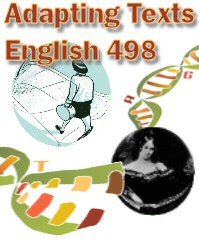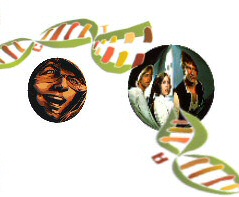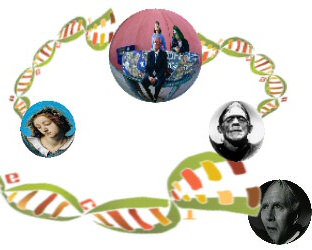 |
 |
 |
 |
|
Length and Due DatesLength: 4 pages, formatted as described in the “Essays” portion
of the syllabus AssignmentFor the Hamlet case study, you may write on one of the following topics. No matter which topic you choose, you must use adaptation theory to develop your argument. 1) At one point in Aki Kaurismäki’s Hamlet Goes Business, Hamlet tosses a page of Shakespeare’s words into the trash. How does the film represent critical revision of the play? What issues are at the forefront of Kaurismäki’s version? How might the film’s concerns critique the focus of Shakespeare’s play? 2) Paintings of Ophelia attempt to capture a moment not explicitly
depicted in the play: her death. Examine two or more Ophelia paintings,
discussing how these works invite us to interpret both Ophelia and
her death. What characteristics, emotions, and motives do the paintings
embody? How do those elements explain—and thus interpret—Ophelia’s
actions? 4) Propose your own topic that addresses Hamlet and one or more
of its adaptations. If you choose this option, you must discuss your
topic with me before proceeding with your proposal. Guidelines1) Although I have asked specific questions, you will need to propose an argument about the relationship between adaptation and source text. 2) Remember to address adaptation theory in your essay, either as a component of your argument or as you support your claim. Our theoretical readings will help you shape your thesis and analyze aspects of the adaptation. For example, Stam’s explanation of how adaptations critically rework sources may help you shape a discussion of Kaurismäki’s alteration of the play’s events. Boyum discussion of adaptation as interpretation may aid analysis of the wide range of characteristics represented in Ophelia paintings. 3) You are writing to an audience who has already read the comic, viewed the film, or listened to the song. Therefore, your essay should not summarize the texts’ contents. Instead, any references—quotations, scene or image descriptions, explanations of plot movement or formal techniques—should support your analysis. 4) As you develop your argument, don’t forget the discussion of Hamlet on the posting board and the feedback you received on your proposal. A review of the postings and your peers’ commentary on your ideas will help you to ask key questions and shape your analysis. 5) If you’re having difficulty devising an approach to the essay, or if you want to discuss ideas-in-progress, email me or come to my office hours in Padelford A-305. ProposalThe proposal assignment allows you to develop a tentative thesis, pose arguments related to this thesis, identify potential evidence and consider organizational strategies for your case study In completing the proposal, you will produce a roadmap to guide your writing process. The proposal should include the following components:
GradingGrades for the case study will be calculated on a 40-point scale. Essays are due at the time indicated; work submitted after the due date and time will be considered late. Late essays will receive a 10-point deduction per day late, including weekends and holidays. I will make exceptions to the lateness policy only in cases of documented illness or family emergency.
Last Update: 4/18/06
|